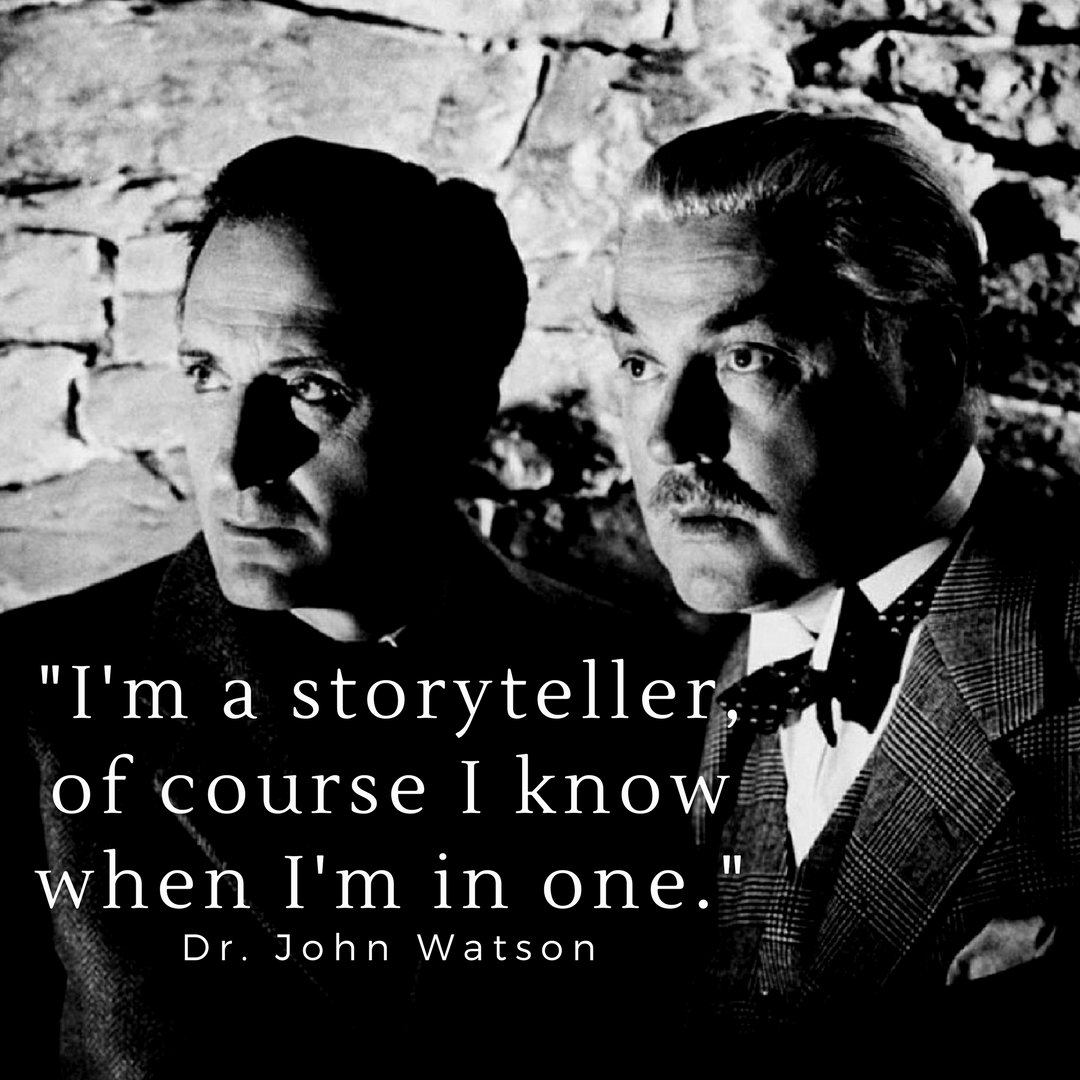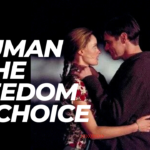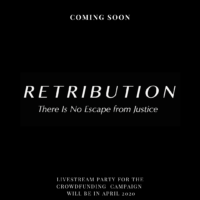
Last night I was re-watching the Sherlock Holmes special where it was set in Victorian England instead of modern day. Towards the end, Watson said a line that I tweeted, ‘I’m a storyteller, of course I know when I’m in one.’ The special explained away the time change by having it all take place in Sherlock’s head. Towards the end when he thought he had woken up, he found he was still in the dream. So Watson told him it was time to wake up then said the line above. I don’t know why, but that line stuck with me. It resonated with a few other people as well, who retweeted and favorited the quote.
I think I related to it because I’m a storyteller. Whether it’s writing novels, short stories, or making short films, the most important part for me is the storytelling. Not just the plot, but how it unfolds. How the characters are important to the storytelling. Not just as vehicles to move the plot along or relate backstory, but how their goals and dreams make the plot possible. How their personalities affect how that plot plays out. The setting – time and place – how that affects how the story is told as well.
The series Sherlock takes a Victorian character and places him in modern day England to show how the same character can work in a different period. There are some changes to his character that allowed him to be updated, but overall his personality remained the same. In the special they took the updated character then put him back into his original setting but kept the changes they made to his character. They also switched back and forth between modern times and the Victorian era so you could see the same characters interacting in different time periods. The characters’ personalities remained the same, but their actions had different consequences because of the era.
A short lived show that was innovative in its storytelling for me was Boomtown. It was a tv show that used non-linear storytelling. The story unfolded as they showed it from the different perspectives of the characters. Because of how they chose to tell their story, a very simple straight forward narrative became complex and intriguing. It was amazing to me how a story could be transformed simply by telling it in an unusual way. I believe it was a show before its time, people couldn’t understand non-linear storytelling and halfway through it’s airing, they changed the format to telling straight forward narratives. For me, even though it was back to the same old linear narrative storytelling, the stories they told were still compelling. But the ratings still did not improve and the show was eventually canceled.
As a writer, I hated that they changed the format of the show to satisfy people who obviously weren’t watching anyway. I think a show told in a similar format today would have a better chance of being successful. And the chances of success would be multiplied if it were to air on a cable network where you don’t have to satisfy as broad an audience as network television and where the individual channels cater to specific niches.
I think it’s like how singers analyze their favorite singing styles. I can’t help but to notice how well a story is told and it will always affect my opinion of it.




